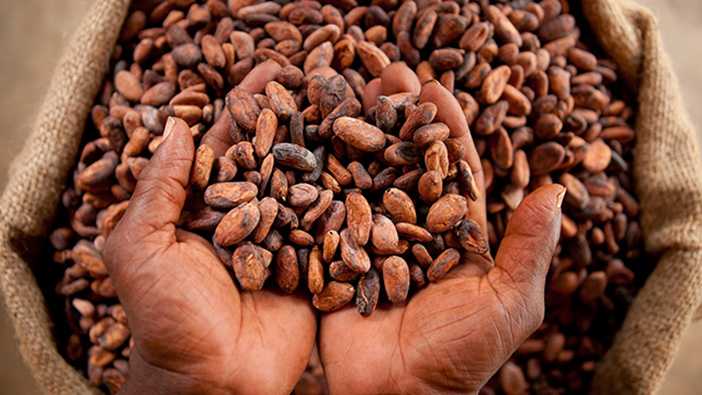NEW YORK, U.S. – The Rainforest Alliance is unveiling an end-to-end strengthening of its pioneering Cocoa Certification Program, which is the world’s largest scale initiative to drive more sustainable cocoa farming. These new measures mark the first stage of Rainforest Alliance’s enhanced certification program for all sectors that will be published in June and rolled out in the subsequent 12 months.
These upgrades reflect Rainforest Alliance’s continued commitment toward addressing core challenges in the cocoa sector: farmer livelihoods, child labor, and deforestation.
With its stepped-up Cocoa Certification Program, the 33-year-old organization is amplifying and reiterating its call for all participants in the cocoa industry to take a proactive role in creating improvement through stronger interventions: one in which cocoa producers have the knowledge, resources and incentives to produce in an environmentally, economically and socially responsible fashion; where all supply chain actors fulfill their role through sourcing and pricing practices that promotes resilience from price volatility and climate change; and, where governments fulfill their vital role in bringing about sustainable change. Above all, the reinvigorated program aims to increase transparency in the certification process throughout the supply chain.
With the support of the cocoa industry, the Rainforest Alliance is taking this unprecedented action to facilitate greater accountability and oversight in the cocoa sector. The organization’s goal is to improve the economic, social, and environmental conditions of the cocoa industry – beginning with the millions of smallholder farmers in the first mile of cocoa production.
“We are proud to announce a significantly stronger program that paves the way for Rainforest Alliance to reimagine certification on a broad scale,” said Alex Morgan Chief Markets Officer at the Rainforest Alliance. “We are confident that these improvements will go a long way in building more comprehensive interventions to help address child labor, improve the lives of farmers, and further curtail the environmental impact. To be clear, our work is not done; nor can we do this alone. It is critical that all participants in the cocoa industry – producers, companies, governments, NGOs, and others – take a more active and permanent role in tackling these issues. Rainforest Alliance will remain vigilant and continue to develop approaches that drive impact through a stronger and more sustainable approach.”
The Rainforest Alliance’s strengthened cocoa certification program includes stricter audit rules and enhanced traceability and performance monitoring systems. In order to drive supply chain accountability, the improved certification program also features clear metrics on shared responsibility.
This announcement follows two-years of comprehensive analysis on the evolution of Rainforest Alliance’s entire certification process. This analysis identified ongoing challenges in the cocoa sector and helped develop viable approaches. For example, the Rainforest Alliance has committed to invest more than $2 million in improving the approach to assurance and transparency and will launch a new $5 million Cocoa Sector Transformation Fund to support more sustainable cocoa farming in West and Central Africa.
Rainforest ‘s efforts to reduce deforestation:
The Rainforest Alliance is implementing stringent requirements for every individual certified cocoa farmer to have specific GPS coordinates placed in our system across West Africa. This will enable us to analyze the data and location of each cocoa farmer to assess whether they are encroaching on protected forest areas. This data will also allow us to target outreach efforts in communities that surround important forest areas.
Rainforest ‘s efforts to improve economic impact on farmers:
The Rainforest Alliance will have an improved system aimed at enhancing market incentives for farmers who are implementing sustainable practices. We will strive to hold our supply chain actors accountable to this transparent approach, beginning with transparency on investments in farm groups/coops and the cash payments made to the individual farmer for her/his certified cocoa sales.
Efforts to strengthen child labor oversight:
This entrenched issue is driven by the social, economic and political context in many countries. Unfortunately, bans on child labor, by themselves, are counter-productive; children can simply be moved to work on unmonitored farms or to other industries. The Rainforest Alliance’s ‘assess and address’ approach recognizes this reality and instead focuses on supporting farmers to introduce a system that discourages child labor and responds appropriately with any cases that occur.
Certification has long helped to demonstrate that economic, social and environmental sustainability are inextricably linked. It has created a market for certified products and an impetus in the cocoa sector to work on key sustainability challenges. The substantial strides in sustainability that our system has achieved to date would not have been possible without the data available through certification. However, in the previous setup producers were shouldering primary responsibility for this improved sustainability performance.
Until the responsibility of increased sustainability is more equitably shared throughout the supply chain, progress on this pathway will be too slow. This is why it is necessary that all participants in the cocoa industry, our alliance, take a more active role to address these and other issues.
That means governments have a key role in supporting producers and supply chain actors with regulation, intervention and enforcement that enables diversified income sources, protects forests, and tackles child and forced labor. It means companies must source and provide a better price for cocoa produced under these conditions. And it means all parties must accept and support a transparent, evidence-based monitoring system, coupled with appropriate remedial measures where warranted.


















